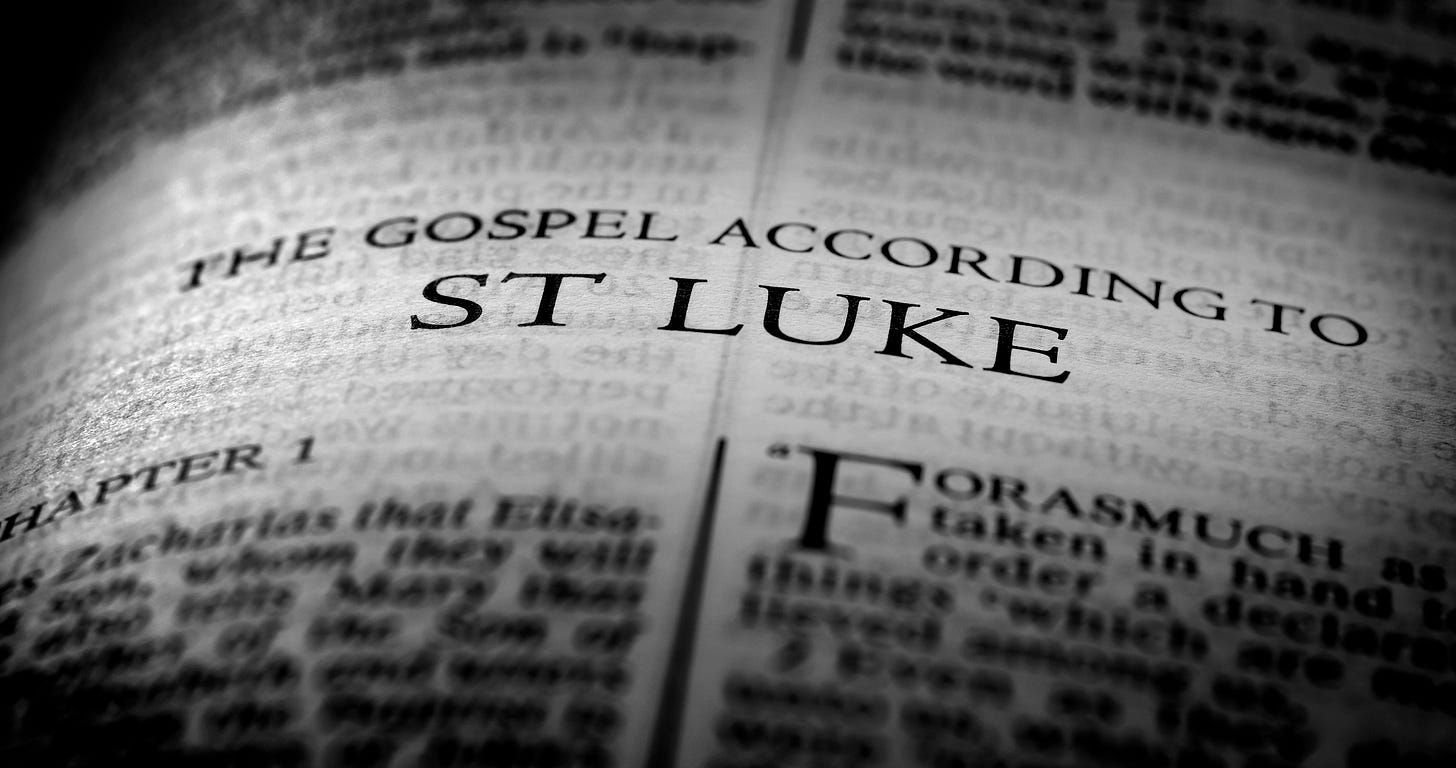Rethinking Luke's Prologue (Video)
If you'd like to watch the video of my recent webinar on the topic of Luke's prologue, it is available below for subscribers, along with a PDF of my lecture notes.
After reflecting on the meaning and significance of Luke’s prologue over the past few months, my view of Luke’s role as an eyewitness has taken a dramatic turn. According to most scholars, Luke was not in Judea during the time of Jesus but later became a disciple of the apostles. In this view, Luke’s Gospel, therefore, is not a record of things he personally witnessed, but instead should be seen as a narrative he composed after interviewing all the key witnesses. Though it’s certainly true that Luke calls attention to the testimony of various eyewitnesses who had written narratives about Jesus, nowhere in the prologue does he indicate that he was a generation removed from those events, or that he was exclusively dependent on those written narratives. In fact, right there in his opening verse, Luke refers to “the things that have been fulfilled among us.”
So, what are the implications of those words? In using the first person plural, was Luke including himself as a member of the group among whom Jesus fulfilled the OT promises about the coming Messiah? Notice the way this same phrase is used in the prologue of John’s Gospel. In verse 14, we’re told that “the Word became flesh and dwelt among us…” Now, in John’s case, we know that he included himself as a witness since he went on to say, “We have seen his glory.” Furthermore, he specifically appeals to his own eyewitness testimony at various places throughout his narrative, and particularly at the end, in which he says, “This is the disciple who is bearing witness about these things, and who has written these things…”
We also find this phrase in Acts 1 in Peter’s speech to the eleven about finding a replacement for Judas. He was to be selected from “one of the men who have accompanied us during all the time that the Lord Jesus went in and out among us, beginning with the baptism of John. In light of these examples, what are we to conclude about Luke’s use of this phrase in his prologue to his Gospel? What did he mean when he spoke of “the things that have been fulfilled among us?” Do these words imply that he, too, witnessed at least some of the events in the life of Jesus?
These are questions I recently explored during a one-hour webinar. If you’d like to watch the video recording of this presentation, you’ll find the link below when you upgrade to a paid subscription. You’ll also receive a pre-release copy of my book, Luke’s Key Witness, and other resources.
To view this presentation, click here to become a paid subscriber
When you upgrade to a paid subscription, you’ll be able to view Shane’s webinar below, download a PDF of his lecture notes, and read numerous quotes from scholars over the past two centuries who have advocated this way of reading Luke’s prologue.


